
Alexandroupoli: The Gateway to Thrace and the Aegean
Alexandroupoli, a coastal gem in northern Greece, is a harmonious blend of tradition and modernity. Nestled by the Aegean Sea, this city offers a unique experience that is both relaxing and enriching. With its charming seafront, vibrant nightlife, and historical landmarks, Alexandroupoli is a captivating destination for any traveler. The city's lighthouse, a symbol of Alexandroupoli, stands tall by the port and offers panoramic views of the sea. The waterfront promenade is perfect for leisurely walks, lined with cafes and seafood restaurants serving fresh, local delicacies. History enthusiasts will find the Ethnological Museum of Thrace a treasure trove of cultural artifacts, providing insights into the region's rich heritage. Alexandroupoli also serves as a gateway to the natural wonders of the surrounding area. The nearby Dadia Forest Reserve is a haven for bird watchers, home to a variety of raptors, while the Evros Delta offers a unique ecosystem brimming with wildlife. For a dose of relaxation, the thermal baths of Traianoupoli, just a short drive away, promise rejuvenation in a serene setting. Whether you're exploring its historical streets, savoring its culinary delights, or venturing into the natural landscapes, Alexandroupoli promises a memorable and multifaceted experience.
Local tips in Alexandroupoli
- Visit the lighthouse at sunset for a spectacular view.
- Try local seafood dishes at the waterfront restaurants.
- Don't miss the Ethnological Museum of Thrace for a cultural deep dive.
- Bring binoculars for bird watching at Dadia Forest Reserve.
- Plan a visit to the thermal baths of Traianoupoli for a relaxing experience.
- Check the local calendar for festivals and events to experience traditional Greek culture.
Alexandroupoli: The Gateway to Thrace and the Aegean
Alexandroupoli, a coastal gem in northern Greece, is a harmonious blend of tradition and modernity. Nestled by the Aegean Sea, this city offers a unique experience that is both relaxing and enriching. With its charming seafront, vibrant nightlife, and historical landmarks, Alexandroupoli is a captivating destination for any traveler. The city's lighthouse, a symbol of Alexandroupoli, stands tall by the port and offers panoramic views of the sea. The waterfront promenade is perfect for leisurely walks, lined with cafes and seafood restaurants serving fresh, local delicacies. History enthusiasts will find the Ethnological Museum of Thrace a treasure trove of cultural artifacts, providing insights into the region's rich heritage. Alexandroupoli also serves as a gateway to the natural wonders of the surrounding area. The nearby Dadia Forest Reserve is a haven for bird watchers, home to a variety of raptors, while the Evros Delta offers a unique ecosystem brimming with wildlife. For a dose of relaxation, the thermal baths of Traianoupoli, just a short drive away, promise rejuvenation in a serene setting. Whether you're exploring its historical streets, savoring its culinary delights, or venturing into the natural landscapes, Alexandroupoli promises a memorable and multifaceted experience.
When is the best time to go to Alexandroupoli?
Iconic landmarks you can’t miss
Lighthouse of Alexandroupoli
A historic lighthouse in Alexandroupoli, guiding ships since 1880. Enjoy stunning views and a vibrant seaside atmosphere.
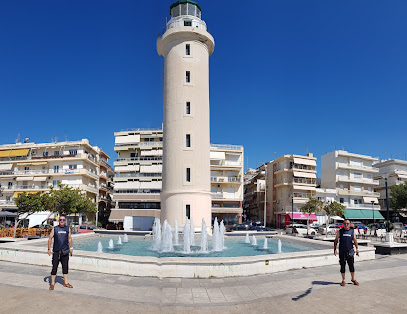
GEORGIADIS ACCESSORIES & SOUVENIRS
Discover exquisite fashion accessories and authentic Greek souvenirs at Georgiadis Accessories & Souvenirs in Alexandroupoli. Open daily!
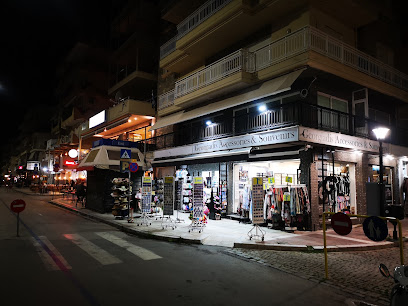
Alexander Beach Hotel & Spa
Experience seaside luxury at Alexander Beach Hotel & Spa in Alexandroupoli, with elegant accommodations, spa facilities, and stunning Aegean Sea views.
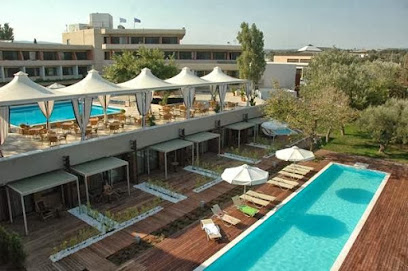
Kellari Pro
Experience authentic Greek cuisine at Kellari Pro in Alexandroupoli. Fresh ingredients, a warm atmosphere, and moderate prices await!
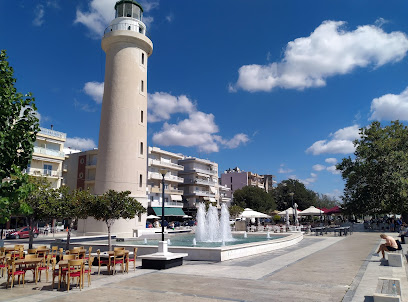
Maintanos
Savor authentic Greek gyros and kebabs at Maintanos in Alexandroupoli, where quality meets flavor in every bite. A local favorite!
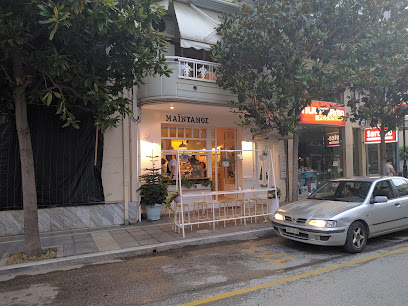
Municipal Camping of Alexandroupolis
Experience nature and city life at Alexandroupolis' Municipal Camping: your gateway to coastal tranquility and Greek adventure.

Alexandroupolis Airport Democritus
Your gateway to exploring the captivating Thrace region, Alexandroupolis Airport offers convenient access to history, culture, and natural beauty.
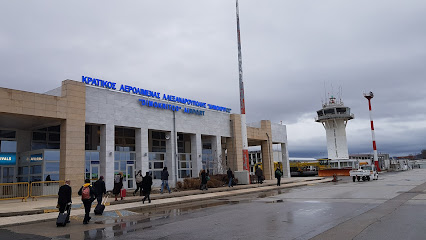
Grand Hotel Egnatia
Experience comfort and elegance at Grand Hotel Egnatia in Alexandroupoli, a perfect blend of city convenience and tranquil seaside retreat.
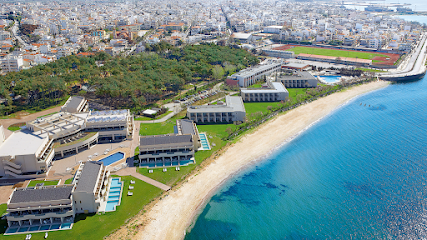
Ethnological Museum of Thrace
Discover Thracian heritage through vibrant exhibits in a stunning neoclassical setting in Alexandroupoli.
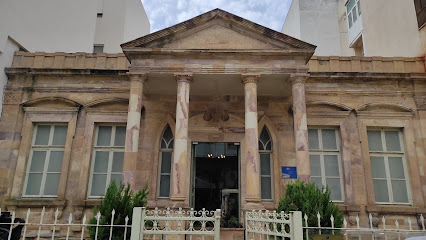
Salgamis Bakery
A taste of tradition in Alexandroupoli, serving authentic Greek pastries, breads, and sweets since 1890. A local favorite!
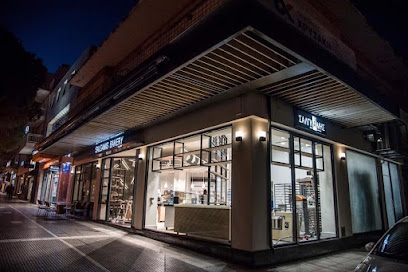
Hotel Lighthouse
Experience comfort and convenience at Lighthouse Hotel, your ideal base for exploring the vibrant coastal city of Alexandroupoli.
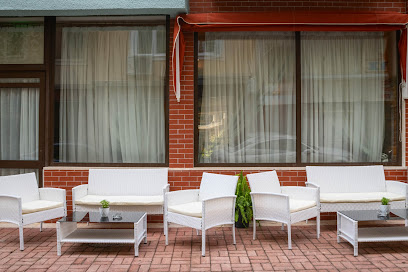
Zopyron - Breakfast & Brunch Restaurant
Enjoy innovative vegan and vegetarian brunch options at this health-conscious restaurant in the heart of Alexandroupoli. Fresh, local ingredients!
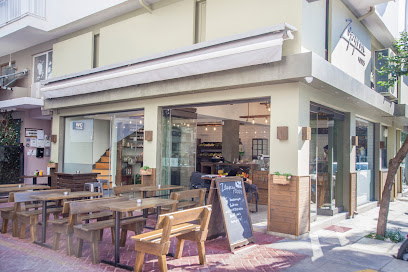
CASINO THRAKI
Experience the thrill of gaming and entertainment at Casino Thraki, Alexandroupoli's premier casino destination.
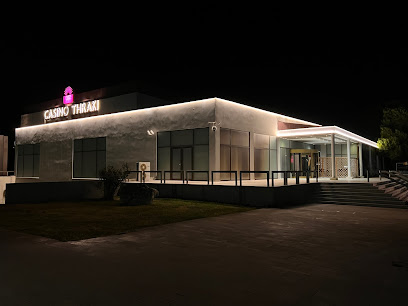
Archaeological Museum of Alexandroupolis
Discover Thracian history from prehistoric to Roman times at the Archaeological Museum of Alexandroupolis, a modern gateway to the past.
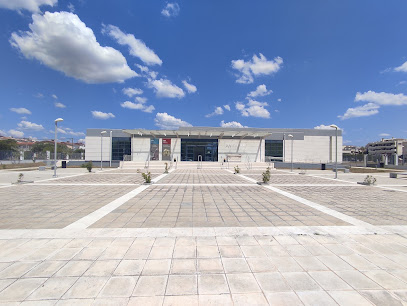
Archaeological Site of Mesimvria Zoni
Uncover the past at Mesimvria Zoni, an ancient Thracian city with remarkable ruins and historical significance near Alexandroupoli, Greece.
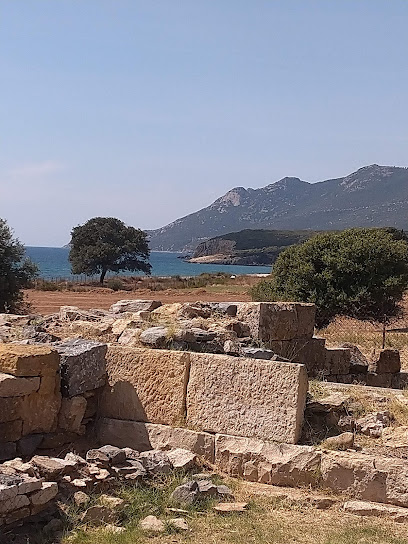
Unmissable attractions to see
Lighthouse of Alexandroupoli
Discover the Lighthouse of Alexandroupoli, a historical landmark offering stunning coastal views and a glimpse into Greece's rich maritime heritage.
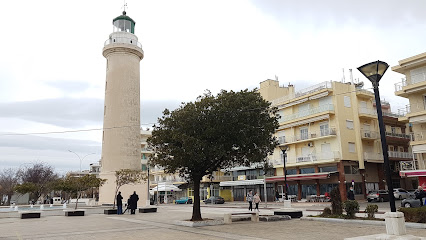
Park of Altinalmazi
Discover the Park of Altinalmazi: a tranquil paradise in Alexandroupoli filled with lush greenery, scenic trails, and delightful wildlife.
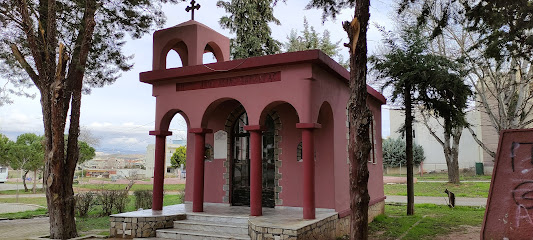
Yuppii Luna Park
Experience the thrill and joy at Yuppii Luna Park in Alexandroupoli, where fun knows no age limit and laughter fills the air.
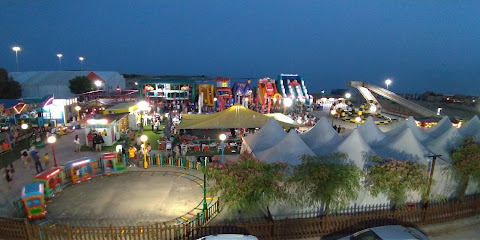
Ethnological Museum of Thrace
Explore the vibrant history and traditions of the Thracian people at the Ethnological Museum of Thrace in Alexandroupoli.
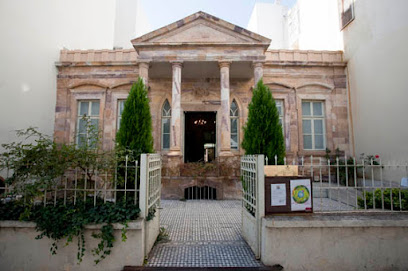
Archaeological Museum of Alexandroupolis
Discover the rich history of Alexandroupolis at the Archaeological Museum, where ancient artifacts bring the past to life in a captivating setting.
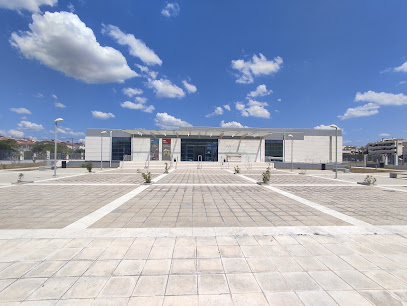
Triangle park
Discover the serene Triangle Park in Alexandroupoli, a perfect spot for relaxation and enjoying nature amidst the bustling city.
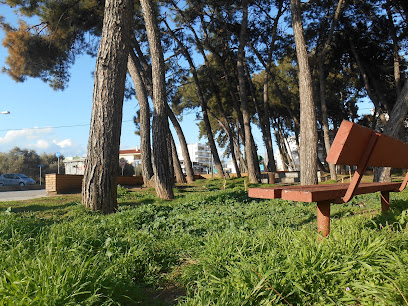
Eastern Thrace Park
Discover the tranquil beauty of Eastern Thrace Park in Alexandroupoli, a lush escape perfect for nature lovers and families alike.
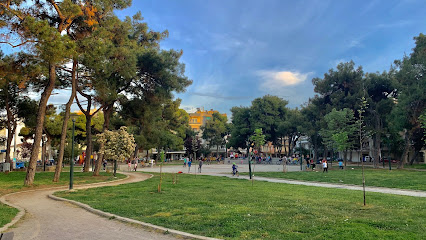
History Museum of Alexandroupolis
Unravel the captivating history of Alexandroupolis at the History Museum, where ancient tales come to life through intriguing exhibits and artifacts.
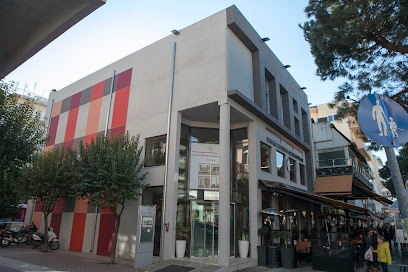
Liberation Park
Experience the beauty and tranquility of Liberation Park in Alexandroupoli, a perfect blend of nature and culture for all visitors.
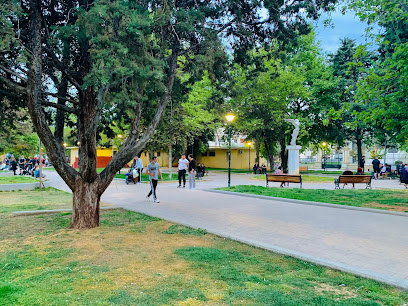
DELTA EVROS EXPLORER
Experience the breathtaking beauty and rich biodiversity of Delta Evros, a UNESCO biosphere reserve welcoming nature lovers and adventurers.
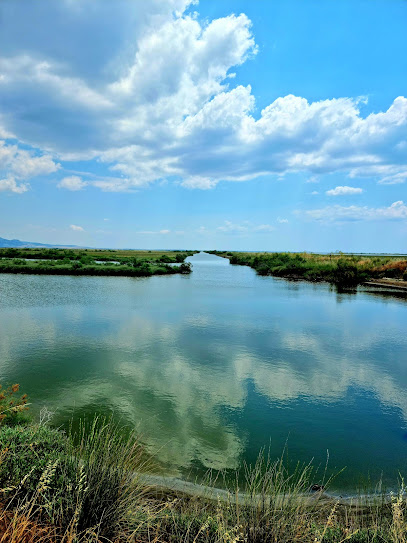
Πλατεία Φάρου
Experience the serene beauty and rich culture of Platia Farou in Alexandroupoli, Greece, an enchanting coastal destination for every traveler.
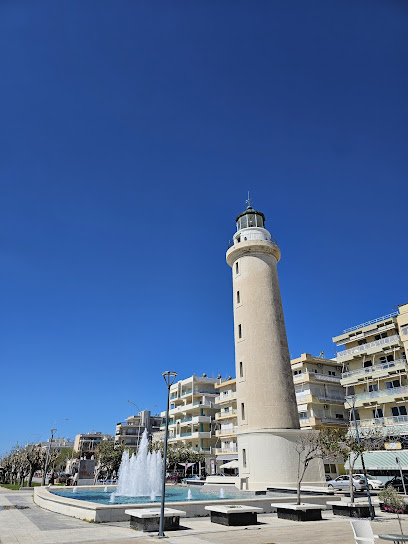
Alexandroupoli New Waterfront
Experience the breathtaking views and vibrant atmosphere of Alexandroupoli's New Waterfront, a must-visit promenade in Greece.
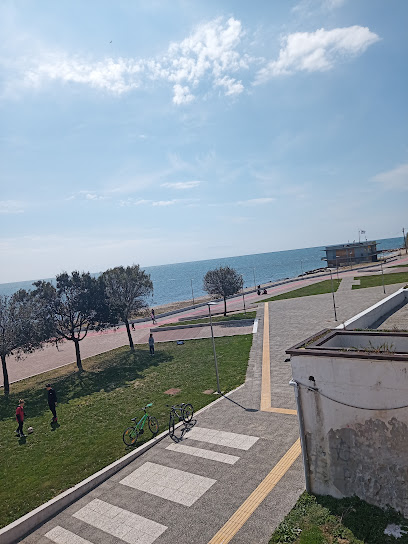
Ecclesiastical Museum of Alexandroupoli
Explore the Ecclesiastical Museum of Alexandroupoli: A Cultural Haven for Art and History Lovers in Greece.
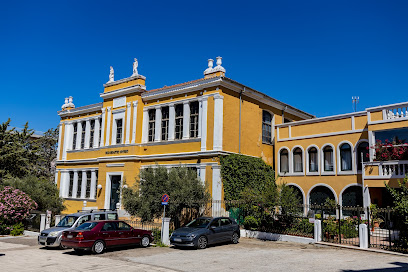
Holy Catholic Church of Saint Joseph
Discover the tranquil beauty and rich heritage of the Holy Catholic Church of Saint Joseph, an architectural gem in Alexandroupoli, Greece.
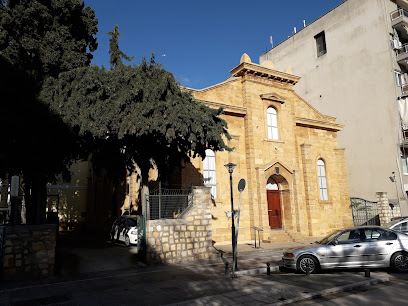
Castle of Potamos
Discover the rich history and stunning views at the Castle of Potamos, a captivating fortress near Alexandroupoli, Greece.
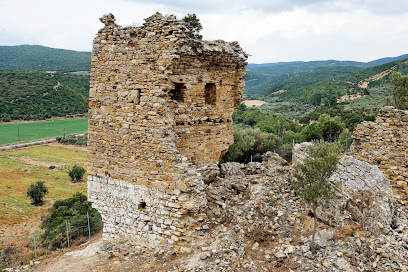
Essential places to dine
Λούκουλος
Savor authentic Greek cuisine at Λούκουλος in Alexandroupoli - where every dish tells a story of tradition and flavor.
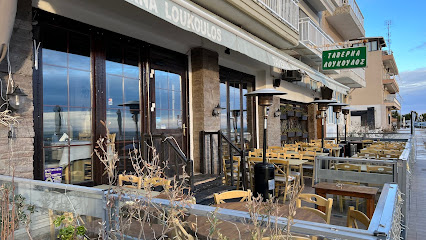
St George's Tavern
Discover St George's Tavern in Makri for fresh seafood and stunning Aegean views; a perfect blend of taste and scenery.
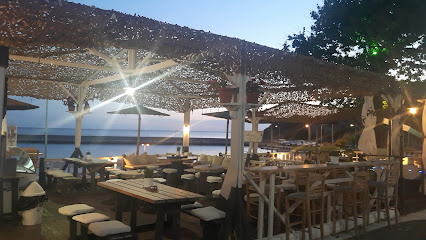
Fish Tavern Nisiotiko
Discover the finest seafood dining experience at Fish Tavern Nisiotiko in Alexandroupoli – where fresh catches meet authentic Greek hospitality.
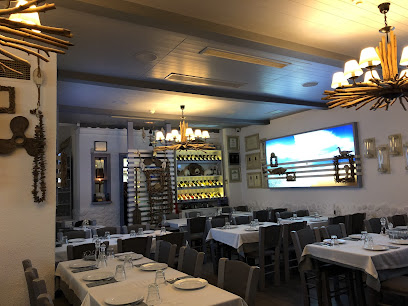
Kerōuac
Experience authentic Mediterranean cuisine at Kerōuac in Alexandroupoli - where flavor meets tradition in every dish.
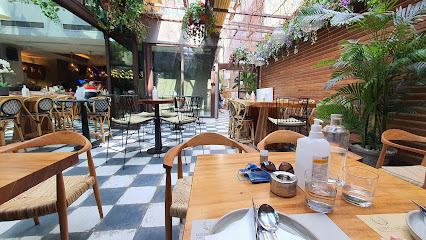
Charama Sea
Experience the best of Greek cuisine at Charama Sea in Alexandroupoli—where delicious food meets vibrant entertainment by the sea.
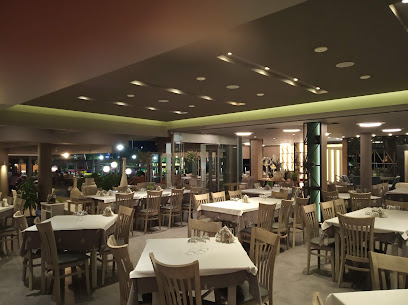
THEMA
Savor exquisite flavors at THEMA in Alexandroupoli - where culinary excellence meets vibrant nightlife.
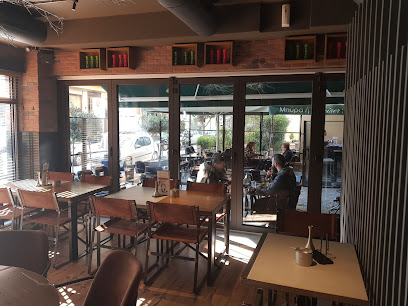
Gialos Seafood Taverna
Experience authentic Greek seafood at Gialos Seafood Taverna in Alexandroupoli - where fresh flavors meet stunning coastal views.
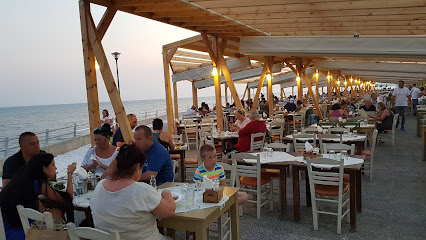
Saríkas
Discover authentic Greek cuisine at Saríkas in Alexandroupoli—where every dish tells a story.
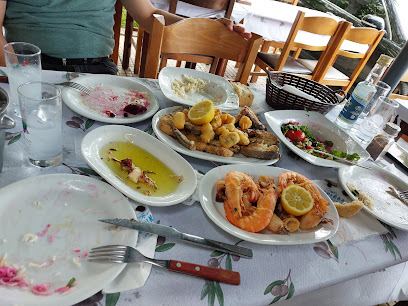
Hovoli
Experience authentic Armenian cuisine at Hovoli in Alexandroupoli - where every dish is a journey through tradition and flavor.
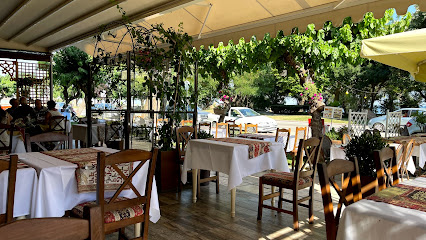
Zourafa
Experience the essence of Greek gastronomy at Zourafa in Alexandroupoli with fresh seafood and grilled meats in a charming setting.
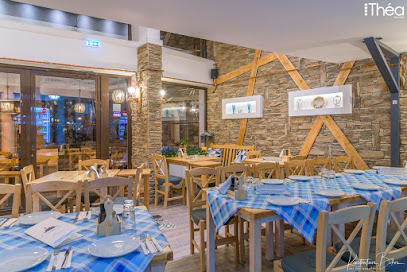
Kellari Pro
Discover Kellari Pro in Alexandroupoli – where traditional Greek flavors meet modern culinary artistry in an inviting atmosphere.
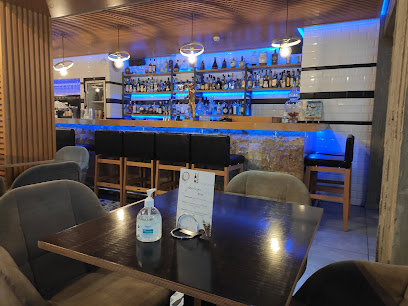
Restaurant Tavern +ουσία
Discover Tavern +ουσία: A Culinary Haven Offering Authentic Greek Dishes in Alexandroupoli.
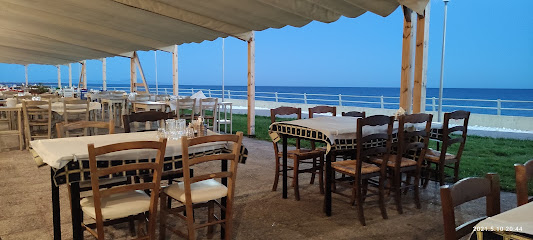
Barolo Trattoria
Experience authentic Italian cuisine at Barolo Trattoria in Alexandroupoli - where every dish tells a story.
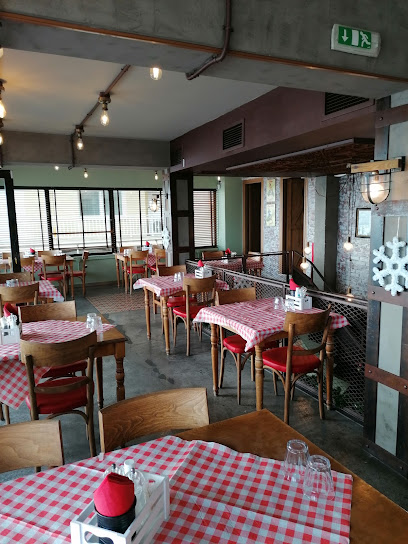
Maintanos
Savor Authentic Greek Gyros at Maintanos in Alexandroupoli - A Culinary Delight Not to Be Missed!
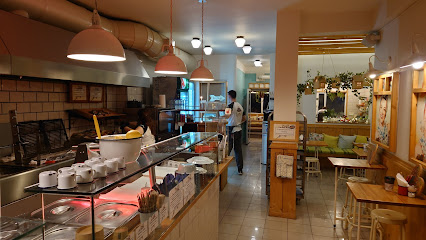
Καναβίδης / Kanavidis 1974
Discover culinary excellence at Kanavidis 1974 in Alexandroupoli - A top-rated chophouse restaurant renowned for its exceptional meat dishes.
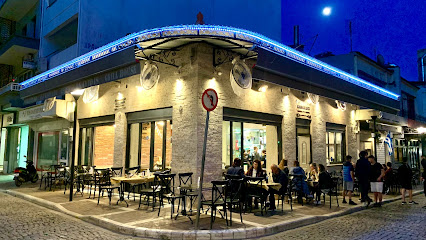
Markets, malls and hidden boutiques
GEORGIADIS ACCESSORIES & SOUVENIRS
Discover unique fashion accessories and authentic souvenirs at Georgiadis Accessories & Souvenirs in Alexandroupoli, where culture meets craftsmanship.
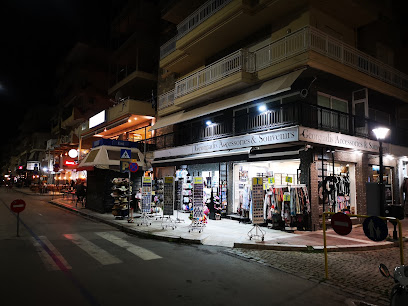
Public Αλεξανδρούπολης
Explore the dynamic Public Αλεξανδρούπολης, your one-stop destination for electronics, books, and games in the heart of Alexandroupoli.
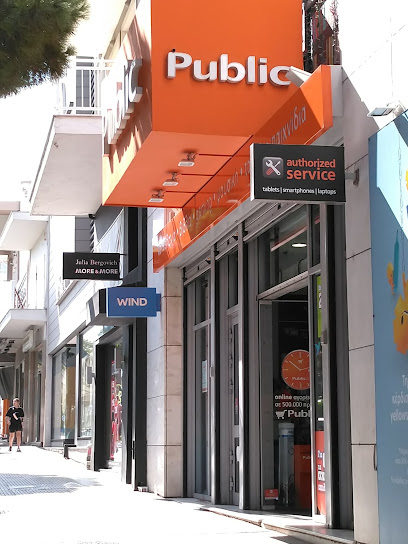
Hondos Center
Explore Hondos Center in Alexandroupoli for an exceptional shopping experience featuring top fashion, beauty, and local products.
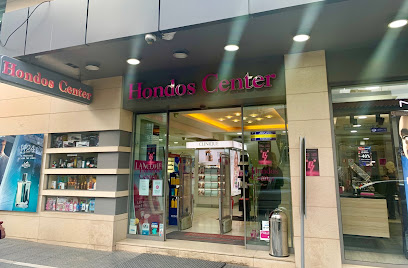
il-mio Alexandroupoli
Explore the vibrant styles of il-mio Alexandroupoli, where fashion meets local craftsmanship in an unforgettable shopping experience.
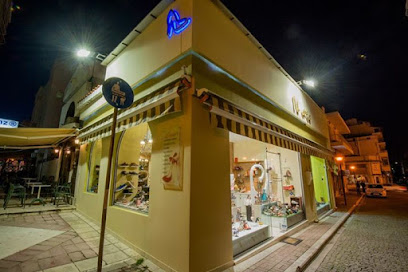
elev8.gr
Discover unique fashion trends at Elev8, Alexandroupoli's premier clothing store, offering a blend of local artistry and modern style.
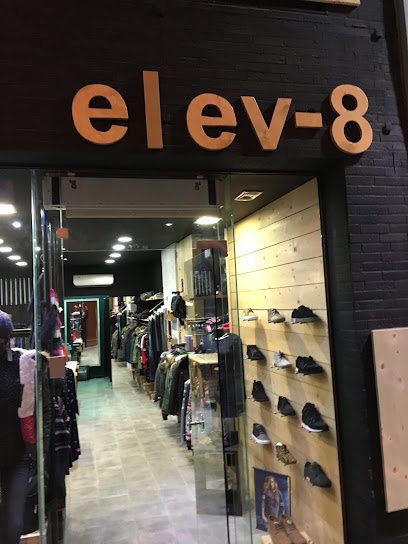
Dangerous Minds Alexandroupoli
Explore unique fashion at Dangerous Minds in Alexandroupoli – a clothing store blending style and creativity for the trendy traveler.
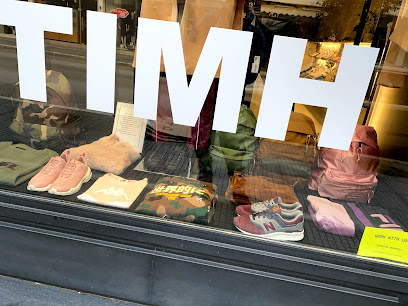
BASE - Καταστήματα Ρούχων
Explore Alexandroupoli's fashion scene at BASE Clothing Store, where stylish apparel meets exceptional quality at affordable prices.
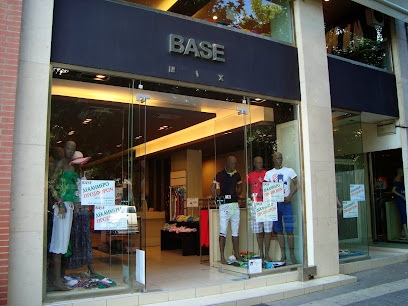
Hermosa Boutique
Discover unique fashion and local craftsmanship at Hermosa Boutique in Alexandroupoli, a charming shopping haven for discerning travelers.
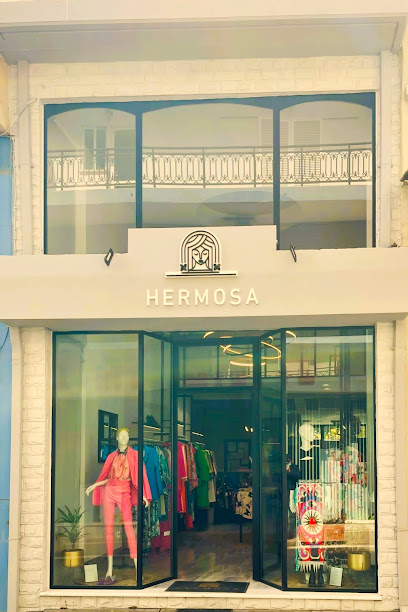
Nike Store
Explore the Nike Store in Alexandroupoli for top-tier athletic gear and trendy sportswear, perfect for every fitness enthusiast.

CBD Oil Shop Αλεξανδρούπολη
Explore a diverse range of organic products, including CBD oils, cosmetics, and supplements at Alexandroupoli's premier natural health shop.
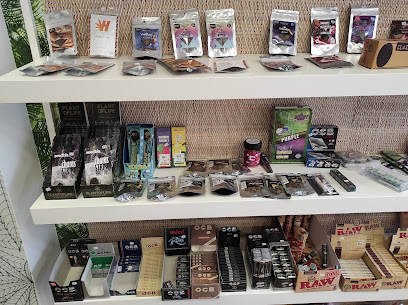
φατσα καρτα Αλεξανδρουπολης
Explore the best of Alexandroupoli at Φατσα Κάρτα, where unique gifts and local souvenirs await every traveler.
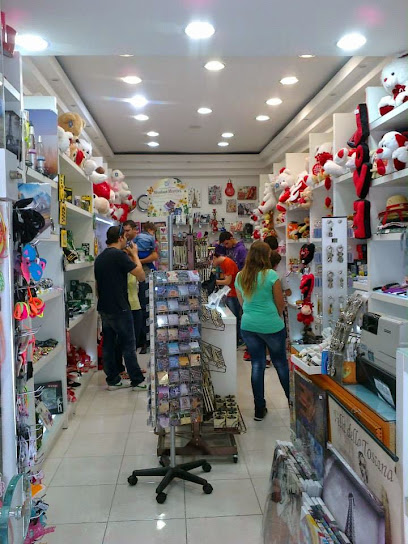
MINI BOUTIQUE
Discover unique fashion at MINI BOUTIQUE, a charming clothing store in Alexandroupoli offering stylish apparel for all ages.
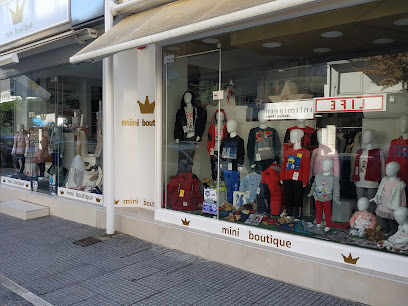
ΤΟ ΚΟΥΜΠΙ - Χαριτοπούλου Σημερούλα - Είδη Ραπτικής - Αλεξανδρούπολη
Discover ΤΟ ΚΟΥΜΠΙ, Alexandroupoli's premier notions store, where creativity meets quality in sewing and crafting supplies.
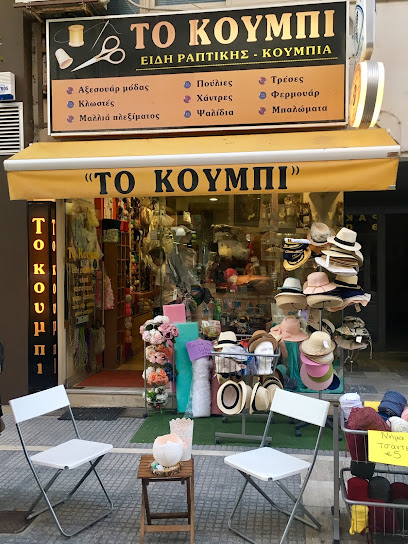
Thrakiki Techni - Souvenirs & Silk Creations Alexandroupolis
Discover the unique charm of Thrakiki Techni, a premier souvenir store in Alexandroupolis, offering exquisite silk creations and fashion accessories.
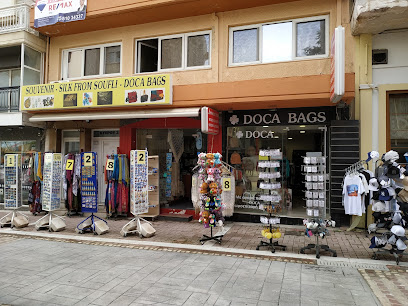
I LOVE ALEXANDROUPOLI by GEORGIADIS
Explore the vibrant charm of Alexandroupoli with unique souvenirs and stylish handbags at I LOVE ALEXANDROUPOLI by GEORGIADIS.
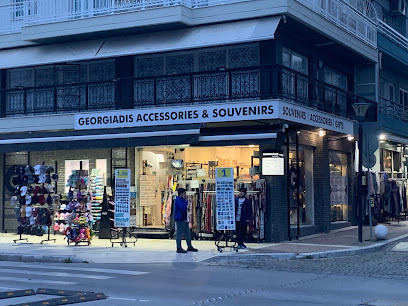
Essential bars & hidden hideouts
Kerōuac
Discover the vibrant atmosphere and exquisite flavors at Kerōuac, Alexandroupoli's premier bar and bistro offering a taste of local culture.
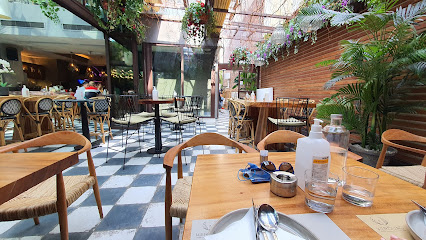
THEMA
Experience the best of Mediterranean flavors at THEMA Wine Bar in Alexandroupoli, where exquisite wines and crafted cocktails await.
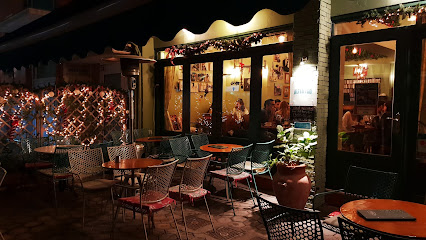
Kellari Pro
Discover the flavors of Greece at Kellari Pro in Alexandroupoli, where every dish is a masterpiece of taste and presentation.
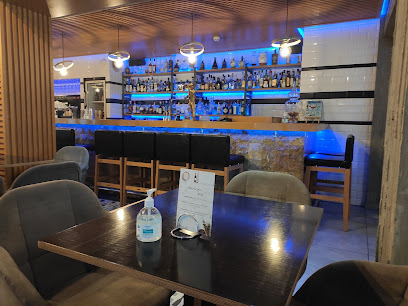
ECCENTRICO
Discover ECCENTRICO, a vibrant bar and café in Alexandroupoli, where culture meets flavor in a lively atmosphere.
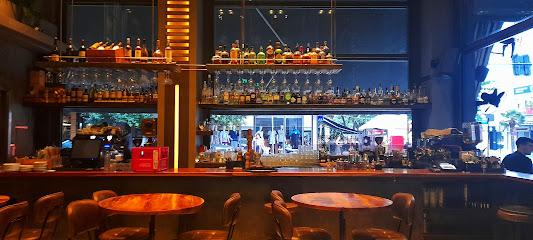
Φίλιον Café-Bistro
Discover Φίλιον Café-Bistro in Alexandroupoli, where Mediterranean flavors meet a welcoming atmosphere for a memorable dining experience.
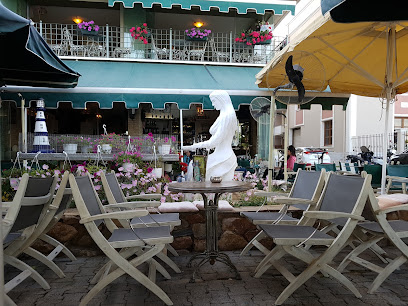
Pico By Night
Discover the electrifying nightlife at Pico By Night, a premier night club in Alexandroupoli offering live music and vibrant entertainment.
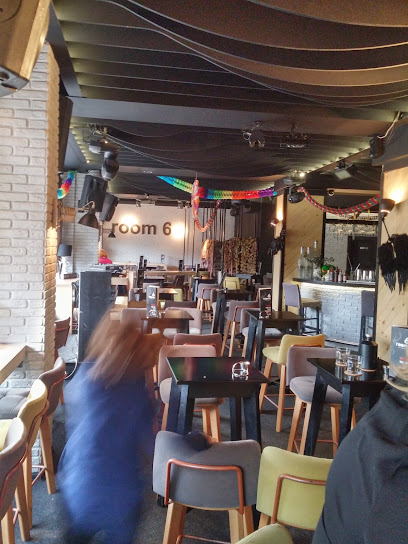
ZUCCA • ALL • DAY • CAFE • BAR
Discover the charm of Alexandroupoli at ZUCCA All Day Café Bar, where coffee and wine meet a vibrant coastal atmosphere.
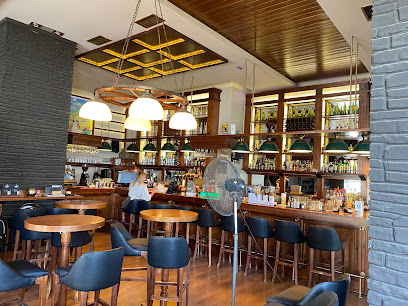
Reina-Indigo Beach Bar
Discover the perfect blend of relaxation and fun at Reina-Indigo Beach Bar in Alexandroupoli, where stunning views and vibrant culture meet.
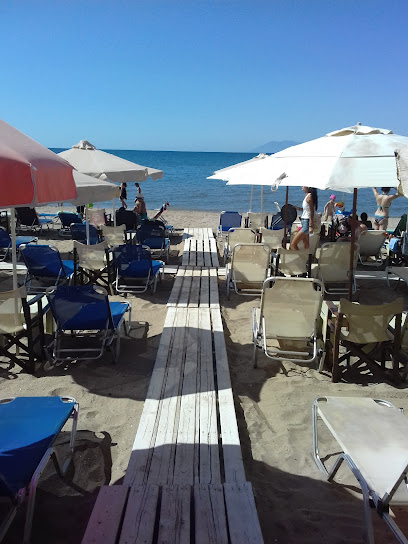
Cohen
Experience the vibrant nightlife of Alexandroupoli at Cohen, where exceptional cocktails and a lively atmosphere await you.
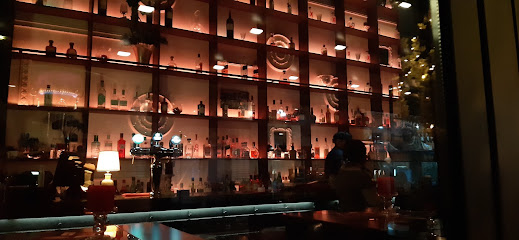
Sahara Beach Bar
Discover the vibrant flavors and stunning views at Sahara Beach Bar, your perfect coastal dining destination in Alexandroupoli.
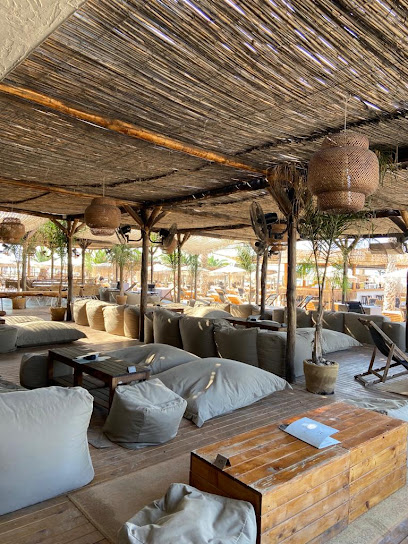
Anemos
Experience the vibrant nightlife of Alexandroupoli at Anemos, where great drinks and a lively atmosphere come together.
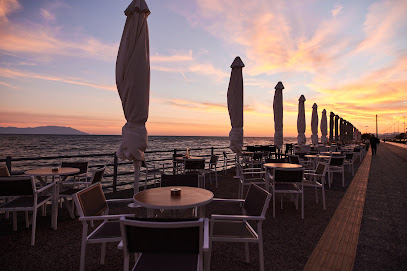
Tierra - Wine Bar & Restaurant
Discover the elegance of Tierra - Wine Bar & Restaurant in Alexandroupoli, where exquisite wines meet delectable Mediterranean cuisine.
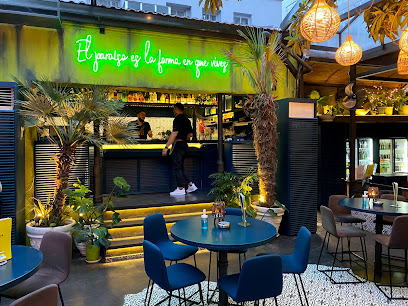
Ραστώνη
Discover the lively nightlife at Ραστώνη bar in Alexandroupoli, offering exquisite cocktails and a vibrant atmosphere for an unforgettable experience.
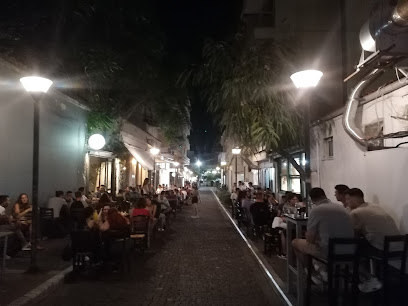
Rock 'n' Roll Cafe/Bar
Rock 'n' Roll Cafe/Bar: A lively bar in Alexandroupoli offering great music, delicious drinks, and a fun atmosphere for all rock enthusiasts.
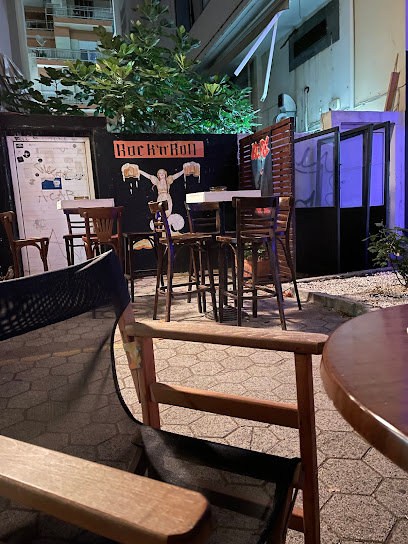
Local Phrases
-
- HelloΓεια σας
[Yia sas] - GoodbyeΑντίο
[Adio] - YesΝαι
[Neh] - NoΌχι
[Ohi] - Please/You're welcomeΠαρακαλώ
[Parakalo] - Thank youΕυχαριστώ
[Efharisto] - Excuse me/SorryΣυγγνώμη
[Signomi] - How are you?Πώς είστε;
[Pos iste?] - Fine. And you?Καλά. Εσείς;
[Kala. Esis?] - Do you speak English?Μιλάτε Αγγλικά;
[Milate Agglika?] - I don't understandΔεν καταλαβαίνω
[Den katalaveno]
- HelloΓεια σας
-
- I'd like to see the menu, pleaseΘα ήθελα να δω το μενού, παρακαλώ
[Tha ithela na do to menu, parakalo] - I don't eat meatΔεν τρώω κρέας
[Den troo kreas] - Cheers!Υγεία!
[Ygeia!] - I would like to pay, pleaseΘα ήθελα να πληρώσω, παρακαλώ
[Tha ithela na plirosso, parakalo]
- I'd like to see the menu, pleaseΘα ήθελα να δω το μενού, παρακαλώ
-
- Help!Βοήθεια!
[Voithia!] - Go away!Φύγε!
[Fiye!] - Call the Police!Καλέστε την Αστυνομία!
[Kaleste tin Astinomia!] - Call a doctor!Καλέστε έναν γιατρό!
[Kaleste enan giatro!] - I'm lostΈχω χαθεί
[Eho hathi] - I'm illΕίμαι άρρωστος
[Ime arrostos]
- Help!Βοήθεια!
-
- I'd like to buy...Θα ήθελα να αγοράσω...
[Tha ithela na agoraso...] - I'm just lookingΑπλά κοιτάω
[Apla kitao] - How much is it?Πόσο κοστίζει;
[Poso kostizi?] - That's too expensiveΑυτό είναι πολύ ακριβό
[Afto ine poli akribo] - Can you lower the price?Μπορείτε να μειώσετε την τιμή;
[Borite na miosete tin timi?]
- I'd like to buy...Θα ήθελα να αγοράσω...
-
- What time is it?Τι ώρα είναι;
[Ti ora ine?] - It's one o'clockΕίναι μία ώρα
[Ine mia ora] - Half past (10)Μισή (10)
[Misi (10)] - MorningΠρωί
[Proi] - AfternoonΑπόγευμα
[Apoyevma] - EveningΒράδυ
[Vradi] - YesterdayΧθες
[Hthes] - TodayΣήμερα
[Simera] - TomorrowΑύριο
[Avrio] - 1Ένα
[Ena] - 2Δύο
[Dio] - 3Τρία
[Tria] - 4Τέσσερα
[Tessera] - 5Πέντε
[Pente] - 6Έξι
[Exi] - 7Επτά
[Epta] - 8Οκτώ
[Okto] - 9Εννιά
[Ennia] - 10Δέκα
[Deka]
- What time is it?Τι ώρα είναι;
-
- Where's a/the...?Πού είναι ένα/το...;
[Pou ine ena/to...?] - What's the address?Ποια είναι η διεύθυνση;
[Pia ine i diefthinsi?] - Can you show me (on the map)?Μπορείτε να μου δείξετε (στο χάρτη);
[Borite na mou dixete (sto charti)?] - When's the next (bus)?Πότε είναι το επόμενο (λεωφορείο);
[Pote ine to epomeno (leoforeio)?] - A ticket (to ....)Ένα εισιτήριο (για ....)
[Ena isitirio (ya ....)]
- Where's a/the...?Πού είναι ένα/το...;
History of Alexandroupoli
-
Alexandroupoli, located in the Thrace region of Greece, has its roots dating back to the early 19th century. Originally a small fishing village known as Dedeağaç, it was inhabited by various Greek, Turkish, and Bulgarian communities. Its strategic location along the Aegean Sea made it a vital spot for trade and cultural exchange.
-
During the Ottoman Empire, Dedeağaç gained prominence as a crucial port city. The Ottomans recognized its strategic importance for both military and commercial purposes. The construction of the railway connecting Dedeağaç to Istanbul and Thessaloniki in the late 19th century further boosted its significance, leading to rapid urban development.
-
In 1919, following the Balkan Wars and World War I, the Treaty of Neuilly transferred Dedeağaç to Greece. The city was renamed Alexandroupoli in honor of King Alexander I of Greece. This period marked a significant shift in the city's demographic and cultural landscape, as Greek refugees from Asia Minor settled in the area, bringing with them their traditions and way of life.
-
During World War II, Alexandroupoli fell under German occupation. The city endured hardships, including the deportation of its Jewish population. However, it remained a hub of resistance activities against the Axis powers. The end of the war saw Alexandroupoli liberated and slowly rebuilding its community and infrastructure.
-
After World War II, Alexandroupoli experienced significant growth. The construction of new infrastructure, such as the port and the Democritus University of Thrace, transformed it into a modern and vibrant city. Its strategic location near the Turkish border also made it an important center for diplomatic and military activities during the Cold War.
-
Today, Alexandroupoli is a blend of historical richness and modern vibrancy. The city's landmarks, such as the iconic lighthouse and the Ethnological Museum of Thrace, stand as testaments to its diverse cultural heritage. With its beautiful beaches, vibrant festivals, and delicious cuisine, Alexandroupoli continues to attract visitors from around the world, eager to explore its unique history and culture.
Alexandroupoli Essentials
-
Alexandroupoli is accessible by various modes of transportation. The nearest international airport is Alexandroupolis International Airport 'Dimokritos' (AXD), located about 7 kilometers from the city center. The airport has regular flights connecting to Athens and other major cities. Alternatively, you can reach Alexandroupoli by train from major cities like Thessaloniki and Athens, with the Alexandroupoli railway station being a central hub in the city. Buses run frequently from Thessaloniki, Kavala, and other regional cities, operated by KTEL. For those who prefer driving, Alexandroupoli is well-connected by the Egnatia Odos (A2) motorway.
-
Within Alexandroupoli, transportation options include buses, taxis, and rental cars. The local bus network is operated by Astika KTEL Alexandroupolis and covers major routes within the city and surrounding areas. Taxis are readily available and can be hailed on the street or booked via phone. Car rentals are also an option for those who prefer to explore at their own pace, with several rental agencies located in the city and at the airport. Bicycles can be rented for a more eco-friendly and leisurely way to explore the city.
-
The official currency in Greece is the Euro (EUR). Credit and debit cards are widely accepted in most hotels, restaurants, and shops in Alexandroupoli. However, it is advisable to carry some cash, especially for smaller establishments and markets. ATMs are plentiful and can be found throughout the city, including at the airport, major streets, and shopping areas.
-
Alexandroupoli is generally a safe city for tourists. Standard precautions should be taken, such as keeping an eye on personal belongings in crowded places and avoiding poorly lit areas at night. There are no specific high-crime areas targeting tourists, but it is always best to stay vigilant. Petty crimes such as pickpocketing can occur, particularly during peak tourist seasons.
-
In case of emergency, dial 112, the European emergency number, which connects you to police, medical services, and fire departments. The local hospital, University General Hospital of Alexandroupoli, provides comprehensive medical services. Pharmacies are widely available for minor health issues and over-the-counter medications. It is recommended to have travel insurance that covers medical emergencies.
-
Fashion: Do wear comfortable and casual clothing, but avoid overly revealing outfits, especially when visiting religious sites. Religion: Do respect local customs; dress modestly and cover your shoulders and knees when entering churches. Public Transport: Do be courteous, give up your seat for elderly passengers, and avoid eating or drinking on public transport. Greetings: Do greet people with a warm 'Kalimera' (good morning) or 'Kalispera' (good evening), and a handshake is common. Eating & Drinking: Do try local dishes and accept food and drink offerings graciously. Don’t rush through meals, as dining is a social activity in Greece.
-
To experience Alexandroupoli like a local, visit the local markets such as the Dimotiki Agora (Municipal Market) for fresh produce and traditional delicacies. Engage with locals at cafes and tavernas, as they are often friendly and eager to share stories and recommendations. Don’t miss the chance to explore the Evros Delta, a unique wetland area rich in biodiversity. For a relaxing day, spend time at the city's beaches or stroll along the scenic waterfront promenade. Participate in local festivals and events to immerse yourself in the culture and traditions of the region.
Trending Landmark in Alexandroupoli
-
Lighthouse of Alexandroupoli
-
GEORGIADIS ACCESSORIES & SOUVENIRS
-
Alexander Beach Hotel & Spa
-
Kellari Pro
-
Maintanos
-
Municipal Camping of Alexandroupolis
-
Alexandroupolis Airport Democritus
-
Grand Hotel Egnatia
-
Ethnological Museum of Thrace
-
Salgamis Bakery
-
Hotel Lighthouse
-
Zopyron - Breakfast & Brunch Restaurant
-
CASINO THRAKI
-
Archaeological Museum of Alexandroupolis
-
Archaeological Site of Mesimvria Zoni







